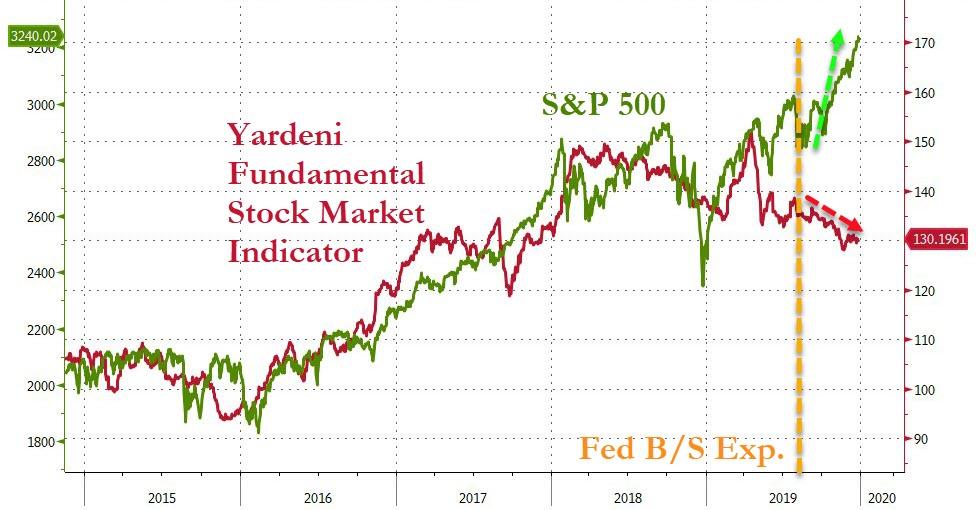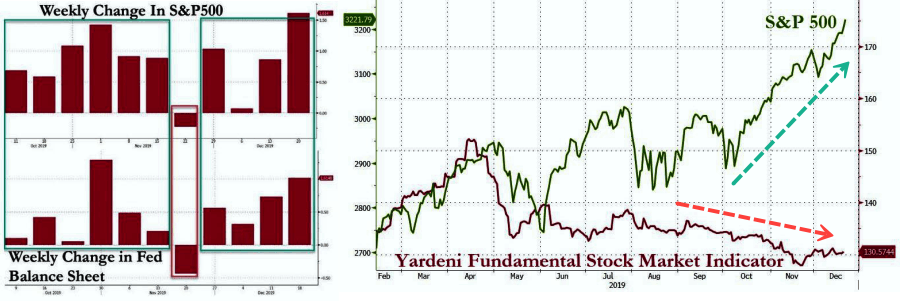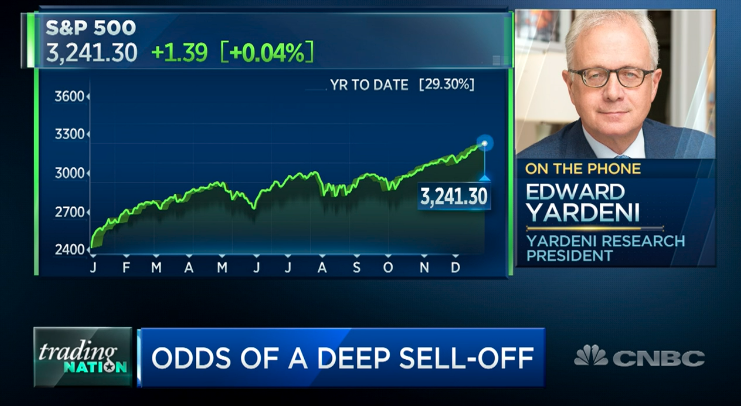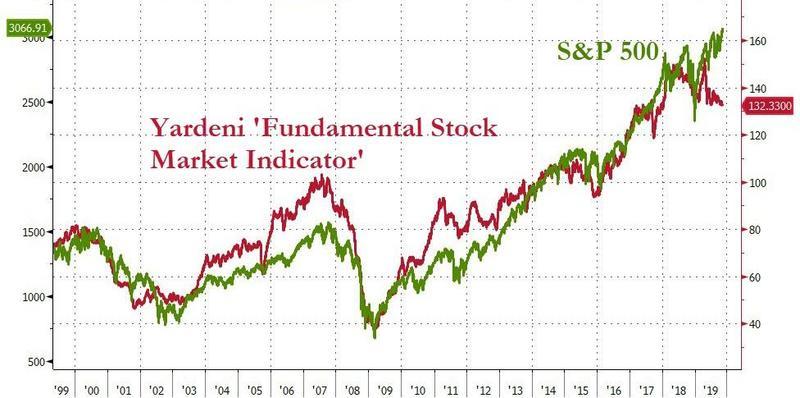"I'm concerned about a possible melt-up here," Yardeni said. "I've been shooting for 3,500 for the S&P 500 by the end of next year, and we're getting closer. Faster than I would have expected."
He warned: ″[A] 10% to 20% [correction] would be quite possible if this market gets to 3,500 well ahead of my schedule."
Yardeni said he's concerned about the market's latest melt-up and how everyone isn't worried anymore.
"This is not a cheap market," Yardeni said. "In early October, I looked around and said, 'you know, maybe there's some value overseas. So maybe you really got to look at emerging markets.'"
Several months ago, Yardeni sounded more carefree, appearing on CNBC to discuss his 2020 year-end S&P 500 target of 3,500 (about 8% higher from Monday morning prices).
In Nov., he warned valuations might have finally become stretched to the point that dangerously rapid "melt-ups" to new ATHs could prove destabilizing.
He also said that if the S&P 500 forward earnings multiple hits 19 or 20 (compared with roughly 17 right now, which is above the long-term norm of 15-16), investors could risk sparking a "nasty correction." However, Yardeni focuses on forward earnings in his interview; his propriety Yardeni fundamental indicator is also beginning to reflect euphoric sentiment.
A close-up suggests why the decoupling occurred...

The surge of liquidity via the Federal Reserve's NOT 'Quantitative Easing' has been responsible for the market rising every single week since the program was activated, despite collapsing fundamentals.

Yardeni warned he wouldn't be buying US stocks at the moment and said wait for the next pullback.


Commenti
Posta un commento